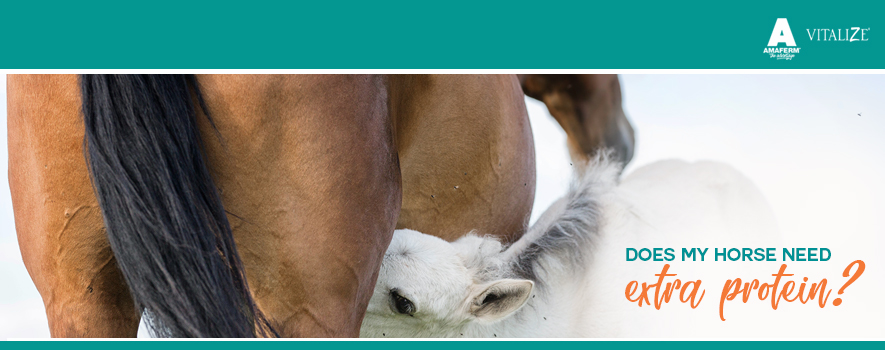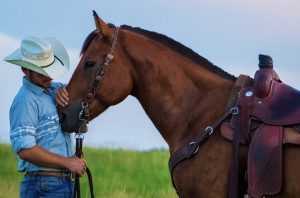
This is a common question in the equine industry. To answer this question, we must first understand what protein is. Protein delivers amino acids to the body, which are primarily used for development and repair of soft tissue, bone and muscle. Therefore, there are five types of horses that require additional protein in their diet:
- Growing Horses – This includes nursing foals, weanlings, yearlings, and 2-year-olds.
- Reproducing Horses – This includes lactating mares, pregnant mares (primarily in their last trimester), and stallions in their breeding season.
- High-Performing Horses – The need for protein is slightly increased in the performance horse. Although many people think excess protein can be converted into energy, that is not necessarily the case. This conversion is very inefficient. Performance horses are often fed a high-quality grain and forage, which usually meets their energy and protein requirement.
- Senior Horses – This includes aging horses that have a decreased ability to digest crude protein, requiring their protein requirement to be a bit higher.
- Horses Fed Low-Protein Hay – The majority of protein should come from forage, but not all hay is created equal. One type of hay may have 6% protein, where another could have 12% protein. In general, grass hay has a protein content between 6 and 10% protein while legume hay has between 14 and 22%. The only sure way to know is to test your hay.
It is a common misconception that “more protein = a better diet.” While this may hold true for some horses belonging to the categories above, it is not true for every horse. But, if your horse falls into one of these categories, consider supplementing additional protein to balance out its diet, such as Vitalize® Equine Protein Pellet. Not only will this product provide your horse with adequate amounts of protein, but it also has the Amaferm® advantage to support digestion and nutrient absorption.
For more information about your horse’s nutritional management, go take our product quiz or contact our team of nutritionists for a free nutrition consultation.

